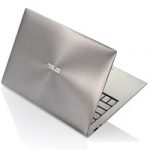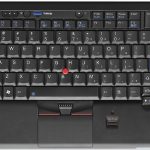It's a gargantuan war among industry titans and the winners will control everything for years to come

Damn, what an extraordinary month.
Let’s recap. First, we saw a spate of exciting new Ultrabook announcements, along with some x86- and ARM-based Windows 8 tablets at Computex. Then Apple introduced new spins of iOS and OS X for tablets and PCs, respectively, at its developer gathering. Microsoft unveiled Windows Phone 8 at the Windows Phone Summit -- and let's not forget the Surface tablet. And this week, Google rolled out new products and concepts buckshot-style at Google I/O, showcasing its first branded tablet, the Nexus 7, and Android 4.1, just to name a few.
I once was blind but now I see -- or, why I’ll never give up my PC for a tablet and smartphone
Say, iPad idolaters, don't write the laptop's epitaph just yet

May you live in interesting times. It’s an ancient curse. Or is it a blessing? There are volumes devoted to that age-old issue. In my world, though, there’s nothing gray about this topic. I get paid to answer questions, so interesting times are a blessing. Straight up. When clients don’t have any questions, now that’s a curse.
These are blessed times we live in, my friends. At least it is in my world. It’s hard to believe that it’s only been two years since Apple sold the first iPad. The year before, the tech world marveled at the vitality of the PC. Incredibly, shipments grew in 2009, defying gravity at a time when the rest of the economy seemed to be in a free-fall. My, how things have changed.
Is Intel Inside iPad, iPhone a pipedream?

Intel CEO Paul Otellini told investors this month that Apple could build its iPad and iPhone lineup on the Atom family of microprocessors any time it wants to. And he’s going to do everything in his power to make that prospect so enticing that Apple can’t refuse. Pipedream? Not hardly.
Now, I understand why some of you would consider this to be pure fantasy. Intel has been trying to pry its way into the smartphone and tablet markets for five years now, and until this year the company has had little to show for it.
Smartphones put privacy on the tsunami hazard map

Now, finally, the tide of public opinion on Internet privacy begins to flow in the other direction. Consumers are becoming more hesitant to share their data and are less tolerant when those with access to their data violate trust. That presents a tremendous threat to some of the titans of our day -- and an equally monstrous opportunity for others. Apple, Google, are you listening?
Honestly, I’m amazed that the issue was ever able to germinate and flower, particularly here in the United States, a country that distinguishes itself on the right to privacy. And a country that spent much of the last century wringing its collective hands over the Orwellian nightmare that awaited us down the road of technological advancement.
Kindle Fire sales are still hot

Wow, what a swirl of good-news/bad-news last week for the media tablets aimed at the ereader market. As it turns out, the roller-coaster ride continues this week.
comScore reported that the Kindle Fire from Amazon generated far more Internet activity in February than any other Android media tablet. Then a few days later, Microsoft dumped $300 million into a Barnes & Noble ebook venture, a move spurred in part by the success of the bookseller’s media tablet, the Nook Tablet.
Kindle Fire, Nook Tablet are better by design

The best-designed Android tablets you can buy today aren’t the sleekest or the sexiest. They’re not the most powerful. And they don’t boast the largest or brightest displays. What they do have, however, are sales. The tablets? The Kindle Fire from Amazon and Barnes & Nobles’ Nook Tablet.
On a runway awash with thin, pretty models, it’s easy to overlook this pair of plain Janes. But don’t. They are two of the top three largest-selling Android tablets on the market. And their formula should serve as a model for how to succeed in this market if you’re a supplier that’s lacking a throng of breathless fanatics aching to snap up anything you sell.
PCs need model years, just like cars

Windows PC makers will start unveiling their first 2013 models from today. They are all desktops built around the maiden Ivy Bridge processors out of the chute, which Intel announced late this morning. Ivy Bridge is the working name for Intel’s 2013 models.
Intel decision-makers chafe whenever I refer to their processor generations as model years. In fact, executives throughout the PC ecosystem universally hate the term. They’d better all start embracing it, though. Because they’ll need to adopt a model-year mentality if they want to ensure continuing growth.
Windows Phone will gain serious market share this year

Let me repeat that a little more verbosely. Watch for Windows Phone to grab a serious hunk of market share at the end of 2012. No doubt about it. "Huh?" you ask. Believe it.
The Feibus-is-crazy club most assuredly is enjoying a surge in membership right about now. And why not? There is certainly plenty of evidence to suggest that Windows Phone thus far has underwhelmed.
Touchscreens are our friends

When I was in college, a housemate and I inexplicably decided to include “Friend or Foe?” in the title of every paper we wrote one semester. I’m going to one-up him here, with two Friend-or-Foe headings in a single column. Take that, Eric.
Now for the first one. “Laptop Touchscreens: Friend or Foe?” This debate, which began a couple of years ago with the rise in popularity of all-in-one desktops with touch interfaces, is percolating again now that touch is migrating onto laptops.
Tyranny of Numbers Two: Why cellular carriers can't meet data capacity

As I passed through the gates of the Mobile World Congress in Barcelona, Spain last week, it struck me that the protests outside served as a metaphor for a collection of conference keynotes that warned of the impending wireless capacity crunch. Neither had much to do with the sea of booths showcasing creative new data-intensive apps and ever-more capable smartphones and tablets. But sooner or later, both will prove to be disruptive to those who are trying to make a living selling the products on the show floor.
It only took a few days for the demonstrations along the Plaza de Espaňa to chip away at the exhibitors’ bottom line. The protests -- at first by public transport workers and increasingly by students objecting to budget cuts -- swelled from a curiosity into an impediment as they grew larger and more forceful. Traffic sputtered after police blocked the main entrance and forced attendees to exit out the back. Some left early. Others arrived later the following day to avoid the crush.
Don't blame tablets for slow PC sales

This is one of the more uncomfortable years the PC ecosystem has ever endured. It started out sluggish, and never really recovered. Early on, Intel’s CEO chided market researchers who didn’t echo his call for double-digit unit growth. (Full disclosure: so did I.) AMD’s board booted its leader in part for taking much the same stand.
Slow growth alone, though, isn’t what draped 2011 in a soot-colored hue. The industry has seen its share of ups and downs. But this year is different. Because while PC sales were under-performing, shipments of these new things, media tablets, skyrocketed. Coincidence?
What's the big deal about Intel Ultrabook?

With the new Ultrabook, Intel seeks to bring together the best qualities of laptops with those of tablets. It's an evolution long-time coming. Finally, near Instant-On and all-day battery life capabilities may reach the masses.
Wake on Resume?
Carriers will make sure no one wins the smartphone wars

Let's say your company wants to produce smartphone apps. On the conference room white board, developers have laid out the beginnings of a small-screen game that will make Angry Birds look like Ms. Pacman. Everyone's pretty excited.
You don't have much budget, so you're going to have to start by focusing on one platform and fan out to others once you're successful. Time to bet on a horse, and start immersing yourself in the ecosystem.
Will ARM or x86 win the mobile processor wars?

Two questions for you: Which is the more powerful architecture, ARM or x86? Which one is the lower power architecture? If you answered ARM to either question, you'd be wrong. You'd also be wrong if you said x86.
Lost in the latest war of words between the two camps is that neither architecture is inherently better for smartphones or supercomputers or anything in between. True, most ARM processors have been designed primarily for low-power duty inside wireless handsets. And, yes, most available x86 processors are better suited for higher-performance applications.
© 1998-2024 BetaNews, Inc. All Rights Reserved. Privacy Policy - Cookie Policy.

